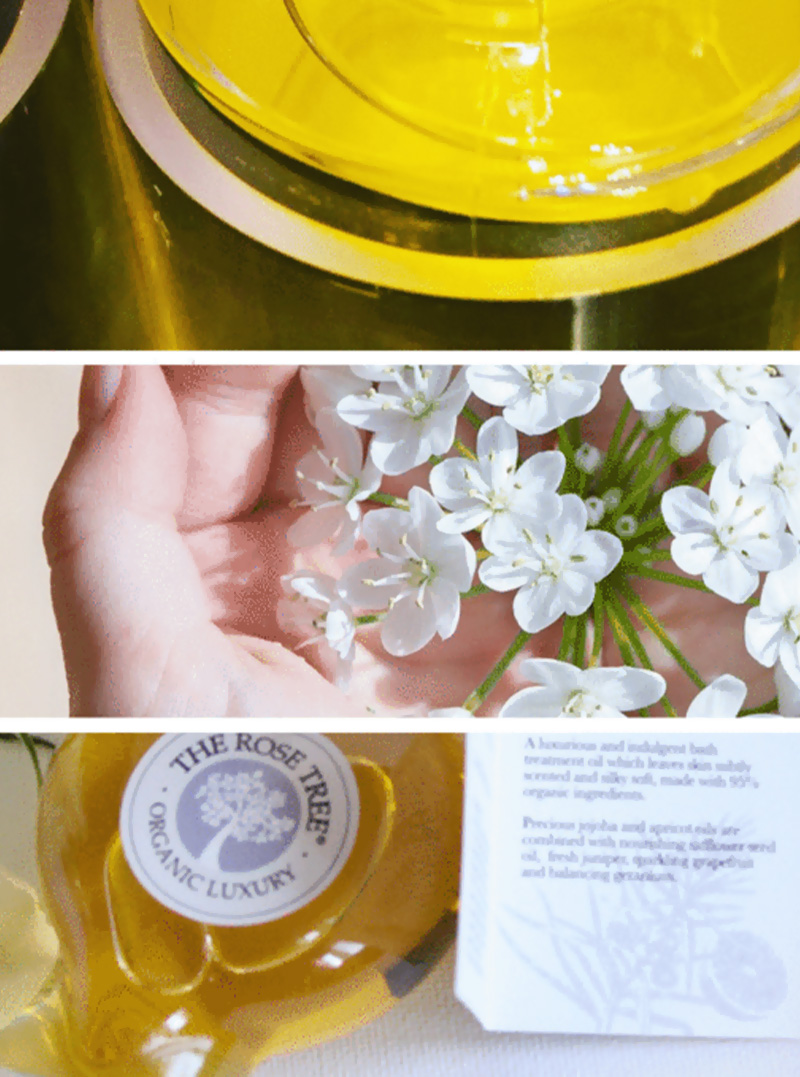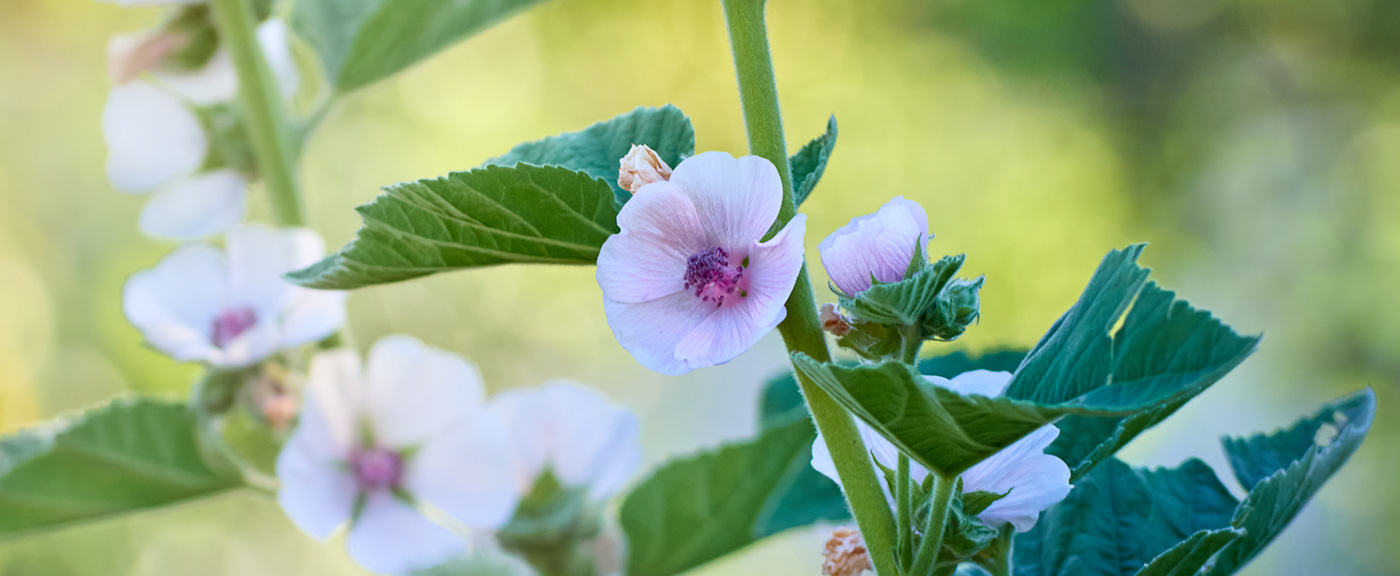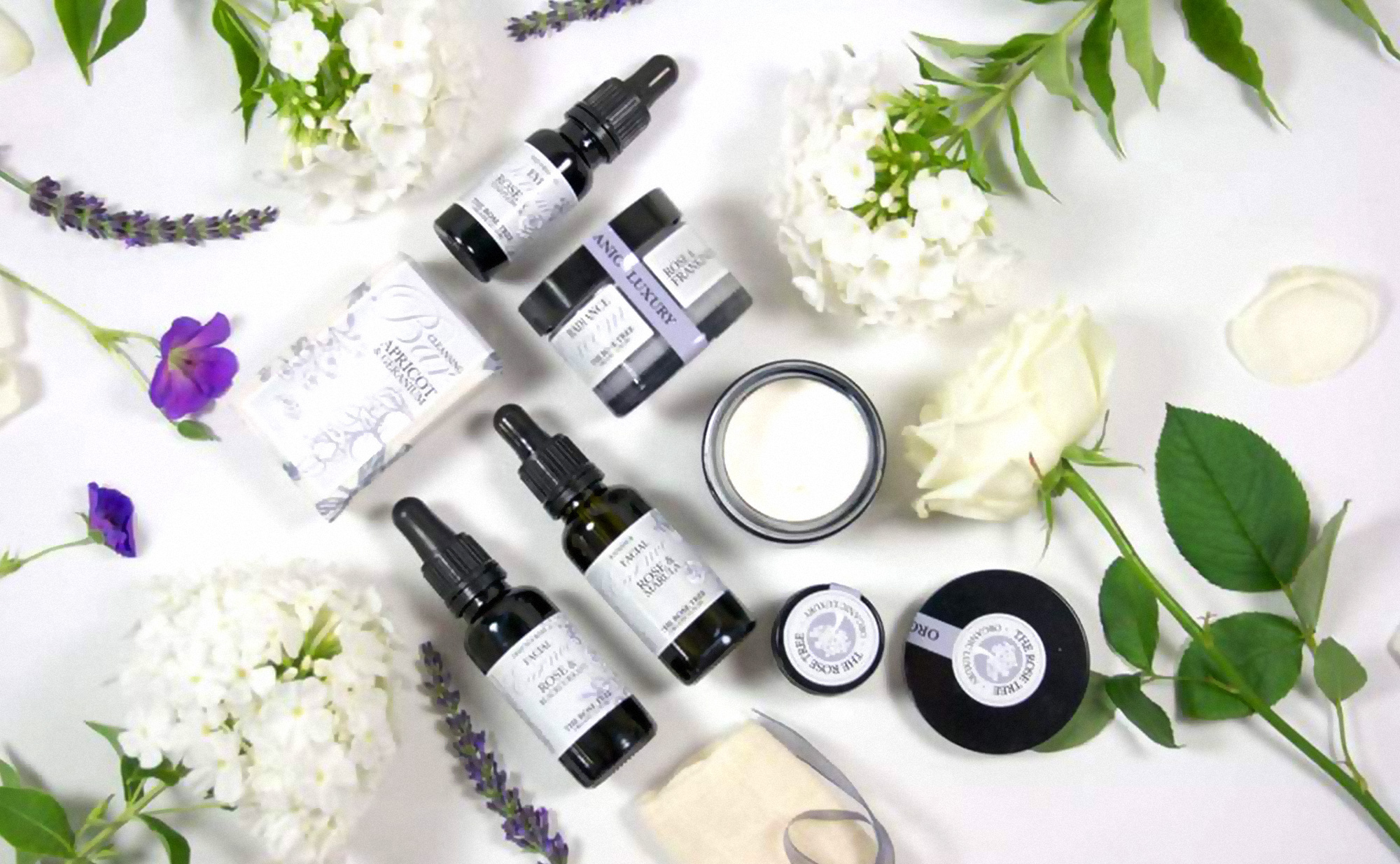A conversation between:
Olga Rumble – The Rose Tree
Malcolm Gilbertson – Silverback®
Larry Dilner – Decision Magazine
Planting the seed
For Olga Rumble, it was the exasperating experience of travelling to work which planted the seed for The Rose Tree, the organic and natural skincare brand she set up.
“In many ways it happened by chance,” she explains. “When I started, it was very much just about having something to do while I time out from being an IT consultant. I just felt there was more to life than getting on a train to London at six in the morning and then staggering back at nine at night.
“I was fascinated by aromatherapy, brewing up concoctions which I started to give to friends as presents for Christmas. They always said how much they liked it and asked if they could pay me for some more, so at the back of my mind there was this thought that maybe I could do something as the green beauty market is growing. Do you know what, I thought it would be enjoyable to do, I could sell a bit on the side and then still do some contracting.” In fact, she also has the role now as projects director at an IT company.
“We are not part of the ’99% rubbish, 1% natural ingredient brigade’”
Her organic and natural skincare brand is about sustainable luxury – also quality over quantity, she says. “There are so many products which have some good ingredients in a soup of what is not so nice. For example, shea butter can be processed and refined to such an extent that it doesn’t have much relevance to the properties people expect it to have. We are not part of the ’99% rubbish, 1% natural ingredient brigade’.”

Talking the right language
She also had some questions about how skincare products are promoted. “Women in their forties and fifties have been being marketed to with models in their twenties,” she points out. “That’s insulting. Marketing skincare has to be real and grown-up – it isn’t about dissolving wrinkles off your skin.”
Rumble couldn’t have picked a more difficult sector for a start-up. “It is incredibly competitive,” she concedes, “with major brands launching organic products to compete against their existing range, and celebrities putting their name to new products.”
“Marketing skincare has to be real and grown-up – it isn’t about dissolving wrinkles off your skin.”
“Actually being seen is the challenge,” she says, “and it’s just as hard for the consumer to define the reality of a product. How does a brand take them on that learning curve? There isn’t one straight answer. It’s about tone of voice to engender trust, showing the process of making the product and sharing your thinking. Why do I use marshmallow root oil from leaves? Because the sticky, sweet resin is the ideal ingredient for our intensive balm to hydrate and soften dull skin. But we have to tell the story why we picked that particular ingredient.
Marketing The Rose Tree is primarily on Facebook, which is the main deliverer of new customers. “We have a presence on Instagram, but I question whether it’s really where my customers are,” muses Rumble. “I treat it as a shop window, and all visibility is good at this part of our journey.”


In store vs. online
Early on, a disproportionate amount of communication through The Rose Tree website was from potential suppliers looking to sell the company ingredients or packaging, rather than from customers, but then Rumble got a missive from the British Malaysian Chamber of Commerce to say that a member with department stores was interested in her products.
For a small business, this was exciting stuff. Rumble flew out there and as part of the sale trained some of their shop floor staff in the properties of the products. Another enquiry which has resulted in sales came from a spa in South Korea. “Having the brand in spas is a good environment because people are getting to experience our products in their treatments,” she explains. ”For any new product, the hardest thing is to get it into the hands of the prospective customer.
“You can revisit your brand values for myriad reasons: environmental, cultural, and technical…”
Not that the High Street is her prime target. “The problem for a small company is that while you would like to be asked by a major retailer, they can either re-order or de-list you with forty-eight hours notice, and that doesn’t work for a brand of our size trying to make its way,” says Rumble. “Our product sells on the story behind it, and I wouldn’t be at all confident that the sales person at a store with thirty other brands being stocked would be able to talk about us with any authority.
“The online model also means I can control what I put in front of the customer; I’m not having to adjust the ingredients to meet the price-point of a multiple retailer. I choose the right ingredients for the job. Otherwise if the equation of power changes, it’s a slippery slope for a brand reliant on its ethos. I realise in the commercial world there are going to be times when you have to make certain compromises, but I’m not going to have my arm twisted and be forced to do something which might compromise the brand.”

Avoiding customer fatigue
So would her strategic thinking touch on opening The Rose Tree Organic Luxury retail outlets? “From a personal perspective that would be really exciting, because having that physical presence equates to recognition,” Rumble says. “An exciting proposition, but the reality is that it would be time consuming and costly.”
“Customers are more aware of what they want to spend time looking at on the internet. People are increasingly savvy…”
And compared to competing on a bricks and mortar basis, for a brand such as The Rose Tree, social media is the equaliser. “We wouldn’t be able to compete, probably even exist without it,” she believes. “But there is so much choice, such a proliferation of messages every minute of the day that you only have a second to grab attention. Customers are more aware of what they want to spend time looking at on the internet. People are increasingly savvy, they want to know how their data is being used, and brands have to work harder to avoid consumer fatigue. In the middle of all this is a grey area, the paid for influencers who endorse products, but I think this will increasingly be seen as a transaction, without authenticity. But of course for now there is a dichotomy. While the new generation is very conscious of the provenance of a product, they’re still influenced by what they see on YouTube.”

Getting people thinking
“For me,” says Rumble, “while a product will develop as time goes on, I expect its brand values to be constant because that’s the foundation piece, the platform, not a marketing-led piece which can be bolted on. For example, there is far more consumer awareness of sustainability, and I get that companies need to take account of that. But if they do so because their competitors are doing it, then that isn’t an evolution of values but a bolt-on, a purely commercial response rather than a belief.
“[…] it is both an opportunity and a privilege to make a positive difference and to enrich my customers’ lives.”
“I really think that The Rose Tree can help the older demographic, and it is both an opportunity and a privilege to make a positive difference and to enrich my customers’ lives. I know that all sounds pretentious, but I want them to think about the quality of the products they are putting on their skin, in the same way they consider the provenance of what they are eating and drinking.”
Trust is everything
Does a new brand have to be disruptive to achieve its goals? “I guess it depends on your definition of disruptive,” Rumble replies. “You’ve got to be doing something different to get attention, but the brand can be disruptive by living its values if others aren’t.
“What is important is that the customer trusts your brand and is willing to come back to you. According to Google Analytics, someone can visit our site seven times before making a purchase.”

Part of a report commissioned by Silverback Studios Ltd, publisher Decision Magazine.



